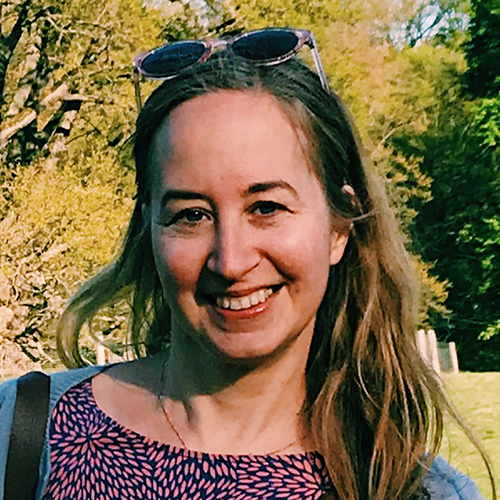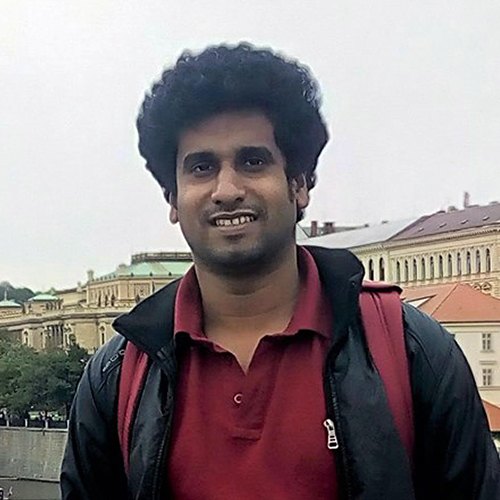Panel 2 – Encountering bureaucracies, immigration regimes and borders
22.10.2020 | 12:00 – 14:00 (CET)
Discussant: ZEYNEP YANASMAYAN
(MPI for Social Anthropology, Halle)

Carolin Leutloff-Grandits
Scientific coordinator and senior researcher at the Viadrina center B/ORDERS IN MOTION, Frankfurt(Oder), Germany
Timespaces in Family Reunification of Refugees in Germany: Administrative Procedures and their Impact on Individual and Family Trajectories
Abstract: Reacting to the increasing number of refugees following the “summer of migration” in 2015, the German government soon released various restrictive measures for the admission and integration of refugees – among others a two-year suspension of family reunification for refugees with a subsidiary protection, starting from March 2016. As most refugees from Syria had received subsidiary protection, this heavily affected their chances to bring family members over and left those who had hoped for it in limbo. Even when the government lifted the ban on family reunification again in summer 2018, family reunification was limited to the rather narrow quota of 1000 persons a month. Furthermore, the administrative procedures were very complicated and often hindered or at least postponed a successful family reunification, despite the backlog of applications.
In my presentation, I want to look at these administrative procedures and want to ask what this meant for the migrants involved. For that, I will focus on expert interviews, and here especially administrators involved in the family reunification counselling, and on interviews with refugees who attempted to bring family members over and who applied for family reunion. More specifically, I want to focus on the time-space dimensions of the procedures and I want to ask how administrators as well as refugees describe, experience and evaluate them. In fact, within family reunification, the time-space dimensions are especially significant, as the procedures involve various actors and political players within different geographical spaces. In the long process of waiting, short time windows open up in which applicants have to hand in their documents. Still, the process remains largely opaque and the length of the process as well as its success are difficult to predict. This again affects family as well as individual life trajectories across geographical spaces – an interplay that I want to focus on in this presentation.

Sophie Richter Devroe
Associate Professor at Hamad Bin Khalifa University, Doha, Qatar
Gendered Vulnerabilities at the Intersection of Law and Kin: Syrian Female Migrants in Greece
Abstract: In this paper, I analyze the role that family, gender and kinship play in the migration experiences of Syrian refugees and asylum-seekers. I focus on young Syrian female migrants in Athens, trying to better understand the delicate and precarious situation they find themselves in when forced to navigate simultaneously through the EU’s legal migration and asylum system, and kin-related legal, social and cultural structures. More specifically, I am interested in how different ‘legal’ and ‘illegal’ bureaucratic and border encounters (and the documents transactioned there) shape young women’s gendered vulnerabilities in migration. How do young Syrian women in Greece mobilize or reject kin structures when navigating through the European border regime? How do their encounters with EU/Greek state bureaucracy and migration law shape their lived experiences of kin and family? And vice versa, how are ‘legal’ procedures of asylum, family reunification and/or relocation predicated upon specific kin relations? Finally, how does kinship impact on (or is impacted by) young Syrian women’s encounters with so-called ‘illegal’ smuggling regimes and counterfeit documentary cultures? My ethnographic data from fieldwork conducted among the Syrian migrant population in Athens from 2017-2020 confirms that ‘legal’ and ‘illegal’ bureaucratic encounters, and the material cultures they engender, are central, but indeterminate and often traumatic aspects of migrants’ life (Navaro-Yashin, 2003, 2007; Cabot, 2012). Yet, many young migrant women, given their precarious positioning at the intersection of law, society and culture, cannot afford getting registered and becoming ‘legal’. For them remaining undocumented offers most chances for personal and migratory success. Despite its claim to neutrality and rationality, asylum and migration law thus in fact (and similarly to citizenship, Joseph, 2000; Pateman, 1988) heightens gendered vulnerabilities. Working in tandem with conservative institutionalized kinship systems, the laws and ‘legal’ practices pertaining to asylum and migration in ‘Fortress Europe’ reinforce patrilineality and heteropatriarchy to form highly gendered, generational, and racialized border regimes.

Salah Punathil
Assistant Professor University of Hyderabad, Hyderabad, India
Bureaucracy, Migrant Illegality and National Borders among Families in India
Abstract: This paper is about the state- driven process of ‘migrant illegality’ and its impact upon the life of Bengali speaking Muslims in the Assam state of India. While the movement of people across borders between India and present-day Bangladesh has been historical and complex, this ethnographic work explores how the state-driven process of detection, detention and ‘deportability’ in the last two decades have disrupted intimate relations and family life among the migrant population in Assam. While the recent NRC (National Register of Citizens) update in Assam identified 1.9 million people as illegal migrants and the Citizenship (Amendment) Act, 2019 threatens to deport the ‘detected’ Muslims from India, there has been bureaucratic enactment of ‘migrant illegality’ through ‘D’ voters or doubtful voters list[1], and detection of ‘illegal migrants’ through ‘referred cases’ by Assam Border Police for last several years. The institutional procedures, court documents and narratives of the select cases of ‘detected’ as well as ‘detained’ Muslims from ethnographic field work reveals how the absence of formal papers and errors on the family records, kinship relations and property inheritance among the poor migrant families transforms actual citizens to ‘illegal migrants’ in the bureaucratic maneuvering. The paper also shows how prejudice, arbitrariness, and contradictions feed into the bureaucratic process and leading to intense crisis among family units, as several migrant families have both Indians and alleged ‘Bangladeshis’ in their home today. The paper argues that the major consequence of this state-driven ‘migrant illegality’ in the last two decades has been the creation of national borders among families, unsettling intimate relations and shared spaces.
_________
[1] D voter is a category of voters in Assam who are disenfranchised by the government on account of their alleged lack of proper citizenship credentials.

Lauren Heidbrink
Assistant Professor at California State University, Long Beach, USA
‘How can I have a future?’: Post-deportation among Indigenous Youth in Guatemala
Abstract: Guatemalan minors are consistently the largest group of young people entering Mexico and the United States and are deported disproportionately in comparison to all other nationalities. Over the last decade, the number of children deported to Guatemala has increased ninefold with an overrepresentation of Indigenous youths (primarily Mam and K’iche). The reasons young people cite for their initial migration—“tener un futuro” (to have a future), “salir adelante” (to get ahead), “ser alguien” (to be someone)—are intimately bound up in meanings assigned to indigeneity and migration over time and space. Their migration cannot be understood exclusively in response to limited finances or economic opportunities; rather, it is cloaked in historical violence and racism that Indigenous peoples encounter daily within and beyond Guatemala. Yet, deportation compels young people to focus on the here and now. Deportation has stark material consequences that impact youth’s everyday lives, including access to food, shelter, and health care; pursuit of education and employment; and future migratory decisions, either their own or of a family member. Guatemalan bureaucracies, schools, employers, and police often enact and compound post-deportation hardship and uncertainty. There are also sustained social and emotional consequences of deportation that alter youths’ intimate relationships and sentiments of self-worth and belonging. As adolescents transitioning to adulthood, this rupture relegates youth to prolonged periods of “waithood” or “liminality”–waiting to get married, to have children, and to advance socially and financially. Thus, deportation marks the foreclosure of opportunities for upward mobility, fulfillment social obligations and rites of passage, and serves as an often-indefinite postponement of future plans. Based upon longitudinal research with Indigenous youth (13-17 years old) deported to Guatemala, this paper traces the tactics and techniques that young people enlist to navigate these difficult circumstances not of their own making.
